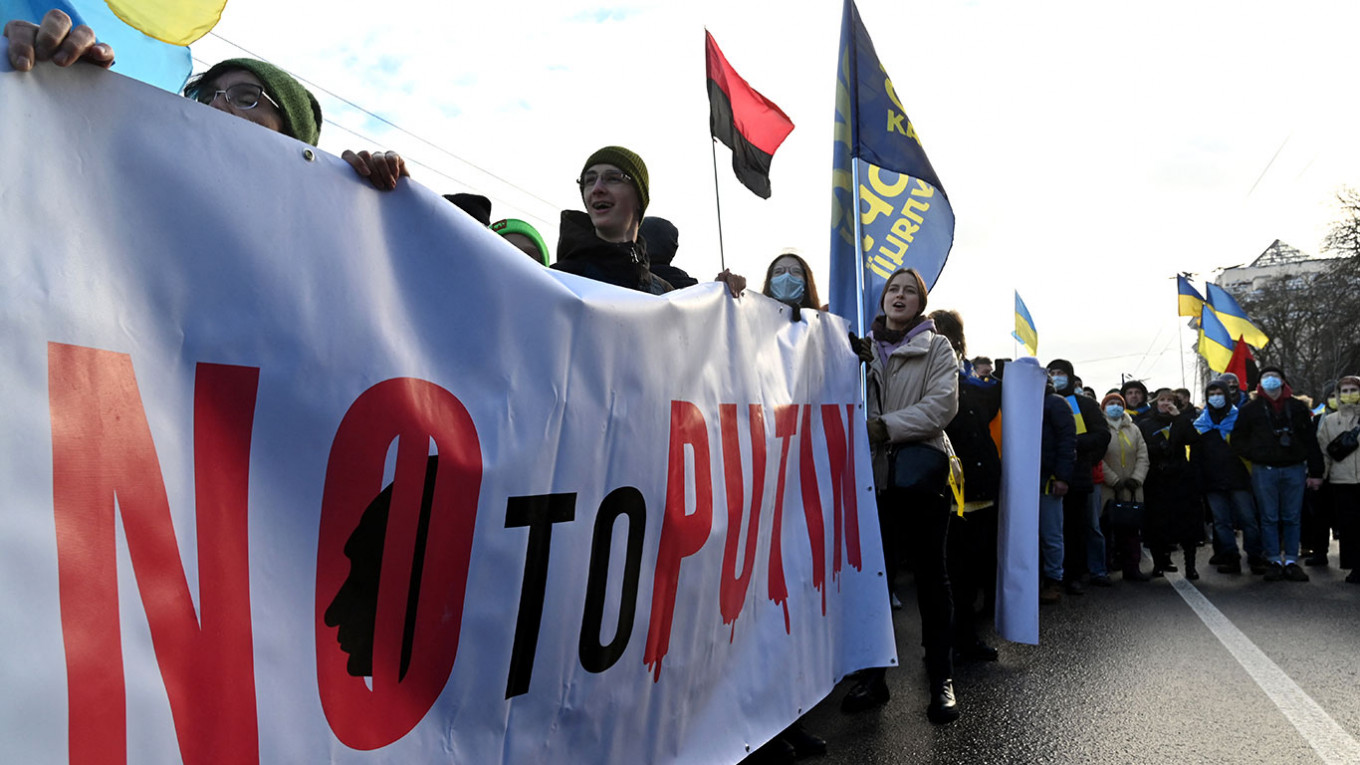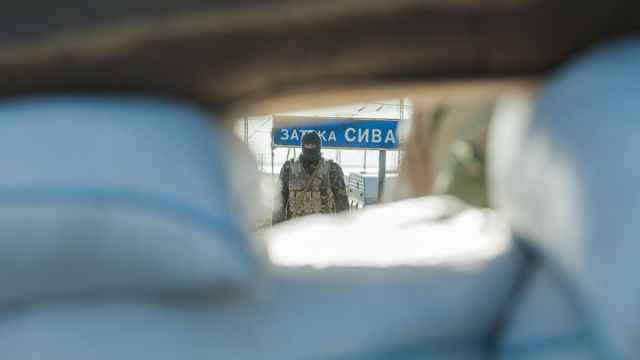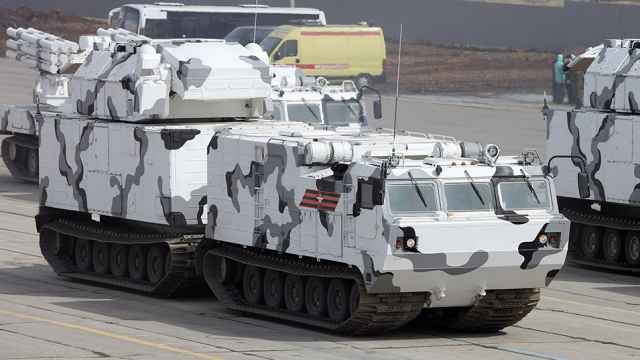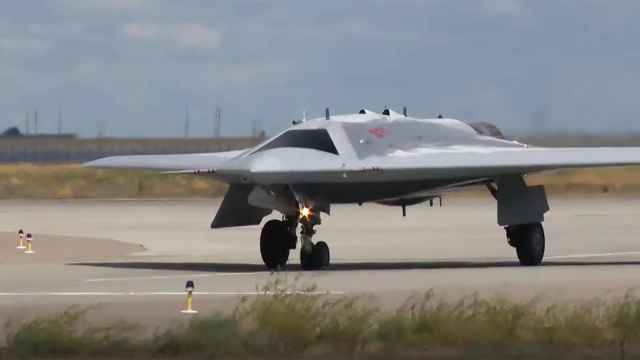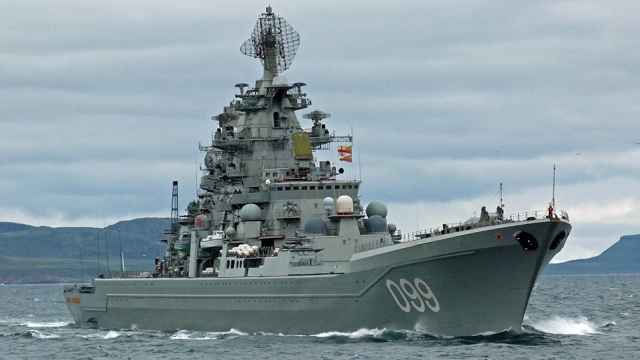Several days ago I read in one respected foreign newspaper that, when commenting on the implementation of the Minsk agreements by Ukraine, the Russian president had quoted a punk song about rape and necrophilia after his meeting with French President Emmanuel Macron.
"Like it or not — put up with it, my beauty," the phrase went.
Excuse me for my forgetfulness, but I can no longer say where I read it. What’s more, I read a dozen similar articles that day, in all kinds of publications.
But one thing I remember precisely is the phrase “Russia experts drew attention to this," pointing to how Putin used the phrase based on lyrics from a 90's song by the Krasnaya Plesen band.
Reading this phrase brought back memories of my childhood in the provincial Russia of the 1990s. Depressing panel housing, defunct factories, men from these factories taking to drinking, my neighbor hanging himself on the balcony because he couldn't feed his family, some children sniffing glue because they had no money for drugs, others stealing electric cables to sell them for scrap metal, one older lad coming back from the war in Chechnya in a coffin.
It was a time when potato chips and Coca-Cola were a real event, we had to work in the vegetable garden so that we had food at home, and my parents, who worked as teachers, didn’t get paid for half a year.
And yes, my classmates listened to Krasnaya Plesen, a group that “Russia experts” were writing about in a respected foreign newspaper — and several other punk groups as well.
By the way, I’m not even sure that this music can be described as punk. They were just playing very dirty music (no, not the kind of thing Kurt Cobain was playing) and swearing a lot — though some lyrics, admittedly, had a deeper meaning. Kids in the working-class suburbs of the 90s liked that kind of thing.
Don’t get me wrong, I’m not saying that only somebody who has lived through this can be an expert on Russia.
Though somebody who had lived through this would never have said that VladimPutin was quoting the group Krasnaya Plesen, simply because they would have heard this phrase long before that, and also because they would have understood that Putin, forty-something in the 90s and already an official in St. Petersburg, would never have listened to something like that.
Make no mistake, you can be an expert on Russia while sitting by a cosy fireplace in Vermont and sipping a glass of tasty Californian Zinfandel. Of course you can.
After all, if I wanted, I could become an expert on the books of Francis Scott Fitzgerald — and I don’t need to live in the age of jazz and prohibition of 1920s America to do so.
But there’s one nuance, a tiny little nuance.
We’re now talking about the likelihood of a big war on the European continent. And if I am to believe my investment portfolio and the sad state of many of my Russian stocks, this is a pretty tangible likelihood.
Forgive me for stating the obvious, but in this atmosphere every word spoken carries weight. And every person who speaks and comments on the situation also bears a certain responsibility. It’s like in modern physics, where a measuring instrument influences the very process that it is measuring.
Of course, the mistake about the punk group is a trifle, nonsense, a mere nothing. The fires of war will not be lit by a spark like this. But it can be seen as a symbol, an example of the general approach to the issue.
Here I need to make a qualification. Many Russian propagandists are now screaming: Where is your lauded freedom of speech, Western media? You are presenting the Russian authorities as grotesque villains, you are painting the whole story in black and white, showing Russia (they equate the country with its government, whereas I do not) solely in dark tones.
No, I have no sympathy for Russian propagandists or for their employers. My reflection is of a different kind.
I completely understand that right now the focus of Western societies’ attention on Russia and Ukraine is greater than ever. And Western media are able to present information not only in order to truly depict what is happening, but to give consumers the keys to understanding it. Inside Russia, fewer and fewer opportunities remain for this. If you haven’t heard, independent journalism in Russia has been progressively destroyed over the last few years.
But instead of this we often see the dissemination of rumors, the fanning of hysteria from out of nothing and analysis of a high-school level.
Perhaps my melancholy is unjustified and all of this reflection is rather pointless. It’s wholly possible that those who will take the decision on whether to start a war or not will not even read this respected Western newspaper that I was talking about in the beginning.
Perhaps. But I’d like to believe that there will be no war, and that one day the government in Russia wil change, and that the wind of freedom will blow once more.
How many years this will take, I don’t yet know. And it would be sad if we arrived at this point having become disillusioned with the respected Western newspapers that wrote about our childhood.
A Message from The Moscow Times:
Dear readers,
We are facing unprecedented challenges. Russia's Prosecutor General's Office has designated The Moscow Times as an "undesirable" organization, criminalizing our work and putting our staff at risk of prosecution. This follows our earlier unjust labeling as a "foreign agent."
These actions are direct attempts to silence independent journalism in Russia. The authorities claim our work "discredits the decisions of the Russian leadership." We see things differently: we strive to provide accurate, unbiased reporting on Russia.
We, the journalists of The Moscow Times, refuse to be silenced. But to continue our work, we need your help.
Your support, no matter how small, makes a world of difference. If you can, please support us monthly starting from just $2. It's quick to set up, and every contribution makes a significant impact.
By supporting The Moscow Times, you're defending open, independent journalism in the face of repression. Thank you for standing with us.
Remind me later.



